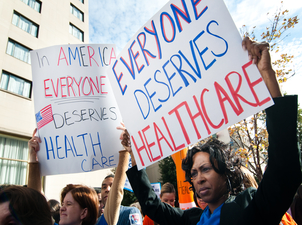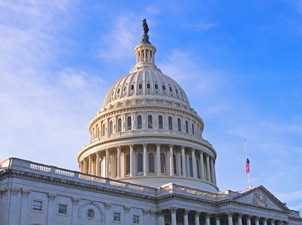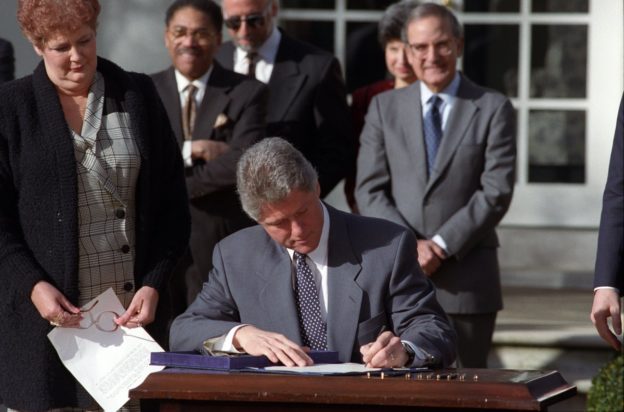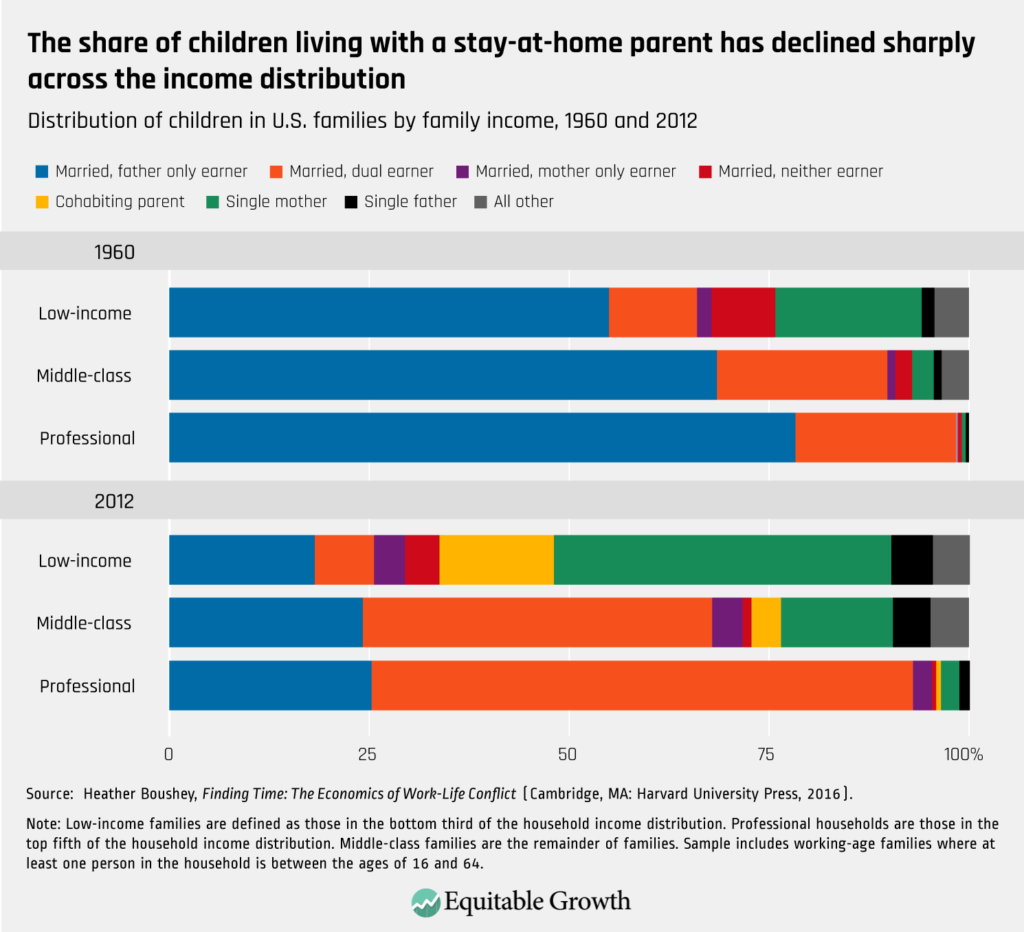
During Black Maternal Health Week, We Call on Congress to Pass the Momnibus Act
Caraline Feairheller
April 14, 2021
This week, Congresswoman Alma Adams (NC-12), Senator Cory Booker (D-NJ), Congresswoman Lauren Underwood (IL-14), and 77 original cosponsors introduced a resolution recognizing Black Maternal Health Week, “to bring national attention to the maternal health crisis in the United States and the urgent importance of reducing maternal mortality and morbidity among Black women and birthing persons.”
The United States has a maternal mortality health crisis that must be addressed. Around the developed world, pregnancy-related mortality rates are falling, except in the United States – where birthing people are dying at a morally unacceptable and rising rate. Approximately 700 women die each year due to pregnancy-related causes with an additional 50,000 experiencing severe health complications from pregnancy. This crisis is most severe for Black birthing people, who are dying 3 to 4 times the rate of their white counterparts. This is a tragedy for our society and for the families who have lost loved ones, and the racial disparities are unjust and sinful.
The COVID-19 pandemic has only increased the barriers to accessing care and exacerbated the already existing racial disparities. Congresswoman Adams, co-founder and co-chair of the Black Maternal Health Caucus pointed this out, saying, “Black Americans were one of the hardest hit communities during this pandemic, and Black and Hispanic mothers accounted for a majority of COVID-19 cases among pregnant women in the United States.” We must dismantle the systemic racism in our health care system and our nation’s response to the COVID-19 pandemic in order to build anew together.
Earlier this year, members of the Black Maternal Health Caucus introduced the Black Maternal Health Momnibus Act (H.R.595/S.346) to address the maternal health crisis. In a country where at least 60% of maternal deaths are preventable, the Momnibus helps to fill current policy gaps in receiving care. This comprehensive legislation seeks to address social determinants of health, invest in community-based organizations, fund research development and data collection, and invest in efforts to diversify the perinatal workforce. In total, the Momnibus is a combination of 12 standalone bills that have been introduced or reintroduced into the 117th Congress. NETWORK is proud to support the Momnibus Act, applauds the Black Maternal Health Caucus for its leadership, and calls on Congress to pass this critical legislation immediately. The Momnibus includes the following legislation:
The Social Determinants for Moms Act (H.R.943):
Introduced by Representative Lucy McBath (D-GA-06), this legislation recognizes that social determinants of health, defined as the conditions where people live, learn, work, and play; affect a wide range of health risks and outcomes. By focusing on these social determinants, this legislation will address the root cause of gaps in care by establish a task force to coordinate federal efforts to address social determinants, provide funding for safe and quality housing for pregnant people, extending Special Supplemental Nutrition Program for Women, Infants, and Children (WIC) eligibility periods for new moms, and invest in funding research that will explore environmental risk, transportation barriers, and more.
The Kira Johnson Act (H.R.1212):
Introduced by Representative Alma Adams (D-NC-12), this legislation is named after Kira Johnson who, despite being in excellent health, died from a hemorrhage after delivering her son Langston. Unfortunately, Kira’s story is not unique in the United States. In order to combat the complex causes of maternal mortality and promote accountability, this legislation invests in community-based organizations that are leading the charge to support outcomes for Black pregnant and postpartum people and women of color. It provides support for bias and anti-racism training programs as well as establishes the Respectful Maternity Care Compliance Programs within hospitals so families can report instances of racial or other types of bias.
Protecting Moms Who Served Act (H.R.958):
Introduced by Representative Lauren Underwood (D-IL-14) and Senator Tammy Duckworth (D-IL), this legislation seeks to uncover the reality for the more than two million women veterans in the United States and their maternal health outcomes. As so little is known about maternal health among veterans, this legislation will commission the first-ever study on the maternal health crises among veterans; with a specific focus on racial and ethnic disparities and identifying potential mental and behavioral risks. Following the study, recommendations will be made to healthcare providers. The legislation will also provide funding towards ensuring coordination takes place between Veterans Affairs and non-Veterans Affairs facilities, facilitate access to community resources, and offer childcare and parenting classes to veterans.
Perinatal Workforce Act:
Introduced by Representative Gwen Moore (D-WI-4) and Senator Tammy Baldwin (D-WI), this legislation addresses the lack of access to maternity care found in both rural and urban communities. More than 1/3 of counties in the United State are considered ‘maternity care deserts meaning that more than 7 million birthing people live where there is no or limited access to maternity care. Specifically, this legislation establishes grant programs to increase access to maternity care providers, provides guidance to states on diverse maternal care, will allow programs to increase number of nurses and other health care workers, and fund studies on barriers that prevent women from entering maternity care professions.
Data to Save Moms Act (H.R.952/S.347):
Introduced by Representative Sharice Davids (D-KS-3) and Senator Tina Smith (D-MN), this legislation builds off the 2018 Preventing Maternal Deaths law by promoting greater levels of representative community engagement in Maternal Mortality Review Committees (MMRCs). MMRCS gather key stakeholders together to listen to the experiences of pregnant people and how these stories can inform health quality measures that promote safe, culturally competent, patient-centered maternity care. Also, this legislation invests in improving data collection and maternal health research at Minority-Serving Institutions (MSIs.) Finally, this legislation will establish the first-ever comprehensive study to understand the scope of the Native American maternal health crisis, who are more than twice as likely to die from pregnancy-related causes than their white counterparts.
Moms Matter Act (H.R.909/S.484):
Introduced by Representative Lisa Blunt Rochester (D-DE-AL), Senator Kirsten Gillibrand (D-NY), and Representative John Katko (R-NY-24), this bipartisan legislation addresses the unique challenge maternal mental health conditions as “mental health conditions are one of the leading causes of pregnancy-related deaths.” This crises is disproportionately felt by Black birthing people who are at increased risk for suicidal ideation and intentional self-harm during pregnancy and postpartum. This legislation will make investments in programs that support moms with maternal mental health conditions and substance use disorders, create initiatives that address stigma, and invest in suicide prevention programs. Also, it will provide funding to grow and diversity the maternal mental health care workforce in order to create culturally-competent care for pregnant and postpartum people with maternal mental health conditions.
Justice for Incarcerated Moms Act (H.R.948/S.341):
Introduced by Representative Ayanna Pressley (D-MA-07) and Senator Cory Booker (D-NJ), this legislation addresses the maternal health crises of pregnant people who are incarcerated, as they face a heighted risk for maternal mortality. The consequences of the United States addiction to mass incarceration from 190 to 2016 has resulted in the number of women in prison increasing nearly 742%, of those who are incarcerated it is Black women who are imprisoned at twice the rate of white women. This legislation will seek to end the immoral practice of shackling pregnant people, provide funds for reentry assistance programs, funds for diversionary programs to prevent incarceration of pregnant and postpartum people, and study the negative implications of Medicaid coverage termination for incarcerated mothers.
Tech to Save Moms Act (H.R.937):
Introduced by Representative Eddie Bernice Johnson (D-TX-32) and Senator Bob Menendez (D-NJ), this legislation recognizes that digital tools, such as telehealth services, can play an important and unique role in addressing maternal health in underserved areas. Specifically, this legislation will promote integration and development of telehealth, provide grants to ensure high-speed, reliable internet access; promote digital tools designed to address racial and ethnic disparities, and study the use of new technology in preventing racial and ethnic bias.
IMPACT to Save Moms Act (H.R.950/S.334):
Introduced by Representative Jan Schakowsky (D-IL-09) and Senator Bob Casey (D-PA), this legislation recognizes that maternal care payment options affect maternal health outcomes. The legislation will establish a new Center for Medicare & Medicaid Services (CMS) that promotes equitable and quality maternal health outcomes for pregnant people covered by Medicaid. It also develops strategies to ensure continuity of health insurance coverage for pregnant and postpartum people, including presumptive eligibility for Medicaid/CHIP programs, automatic reenrollment in Medicaid/CHIP for birthing people, and prevents any disruptions on coverage during pregnancy, labor, delivery, and up to one year postpartum.
Maternal Health Pandemic Response Act:
Introduced by Representative Lauren Underwood (D-IL-14) and Senator Elizabeth Warren (D-MA), this legislation recognizes that the COVID-19 pandemics has worsened the already existing and immoral maternal mortality crisis in the United States. Pregnant people are at a significant risk for severe COVID-19 outcomes and Black women experienced a disproportionate number of deaths. This legislation makes targeted investments to advance safe maternal health outcomes during COVID-19 and beyond. It will require COVID-19 data collection be disaggregated by pregnancy status, ensure vaccines are safe for pregnant people, and establish a take force for creating safe birthing experiences during COVID-19 and potential future disease outbreaks.
Protecting Moms and Babies Against Climate Change Act (H.R.957/S.423):
Introduced by Representative Lauren Underwood (D-IL-14) and Senator Ed Markey (D-MA), this legislation recognizes the reality of climate change exacerbating risks for pregnant people. As climate change results in greater air pollution and heat exposure, pregnant people and their infants are at risk and the legacy of environmental racism leaves Black mothers particularly at risk. This legislation will establish research opportunities on the relationship between climate change and pregnancy, design programs to identify climate change risk zones for pregnant people and their babies, provide health professional training on how to mitigate the risk of climate-change related risks, and provide funding to improve infrastructure.
Maternal Vaccination Act (H.R.951/S.345):
Introduced by Representative Terri A. Sewell (D-AL-07) and Senator Tim Kaine (D-VA), this legislation will provide funding for programs to increase maternal vaccinations rates and develop maternal vaccinations campaigns with community-based partner organizations and trusted leaders.
The Black Maternal Health Momnibus Act of 2021 is a necessary and comprehensive collection of 12 bills that must be passed into law in order to address the immoral legacy of the United State maternal mortality crisis. NETWORK Lobby urges members of Congress to quickly pass the Momnibus, in its entirety, in order to honor the essential dignity of each human person.
Learn more about each of the bills included in the Momnibus Act here.
















